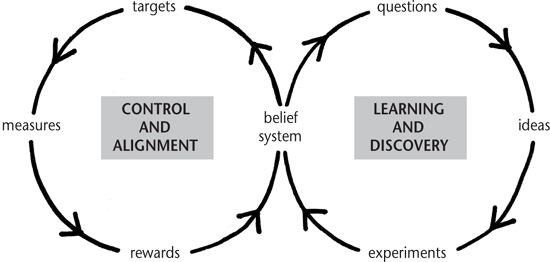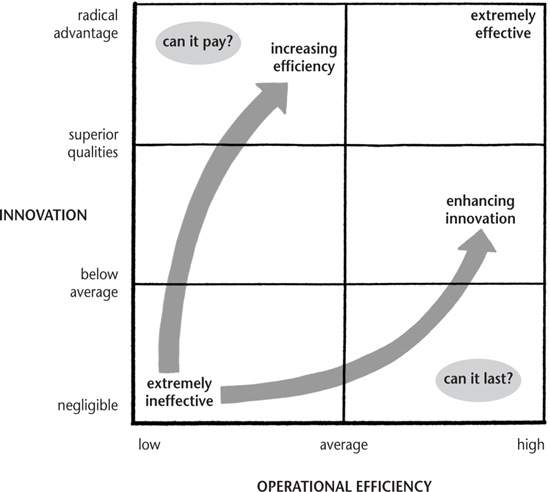
The two vital loops: combining the virtues of alignment and discovery
PRACTICAL METHODS of redressing organisational bias, especially the bias in favour of control at the expense of learning, are essential if strategic thinking is to be strengthened and managerialism is to be reformed. Reprising the double-loop diagram from Part 3, this final section puts forward a model of organisational capability that has the power to shift the locus of the firm to the right loop centred on learning and discovery.

The two vital loops: combining the virtues of alignment and discovery
Most corporate work goes on in the left loop: the domain of control and of keeping things going; of grinding out efficiency gains; of doing more of what we already do; of continuous improvement and making all those minor adjustments that tweak the effectiveness of existing products and processes. By contrast, what we call the discovery process focuses unequivocally on the right loop: the domain of experimentation; of expanding the range of fresh insights; of reflecting on existing habits and assumptions; of aspiring to new wisdom and more compelling truths, and creating ways of questioning long-untested orthodoxies.
It is not that firms do not learn from operating in the left loop of alignment and control, but some organisations evidently learn faster and more effectively than others. They seek out learning opportunities; they emphasise the virtues of curiosity and inquiry; they make a habit of questioning their assumptions; they purposefully frame bold new hypotheses; and they actively experiment with them. Even if a supine or control-besotted firm learns something from its accumulating everyday experiences, this clearly is not enough to gain it a noticeable competitive edge, since its competitors will be doing the same. In a quite well-run firm, the mere intensification of alignment and efficiency restricts its learning to that which will help it do better what it already does.

Combining efficiency and innovation
The right loop is not a mere option for any organisation that wants to lead, to win, to survive and prosper in good shape; it is a necessity. The message is simple: while efficiency and a control focus will keep you in the competitive game for a while, only fresh discoveries will enable you to win.